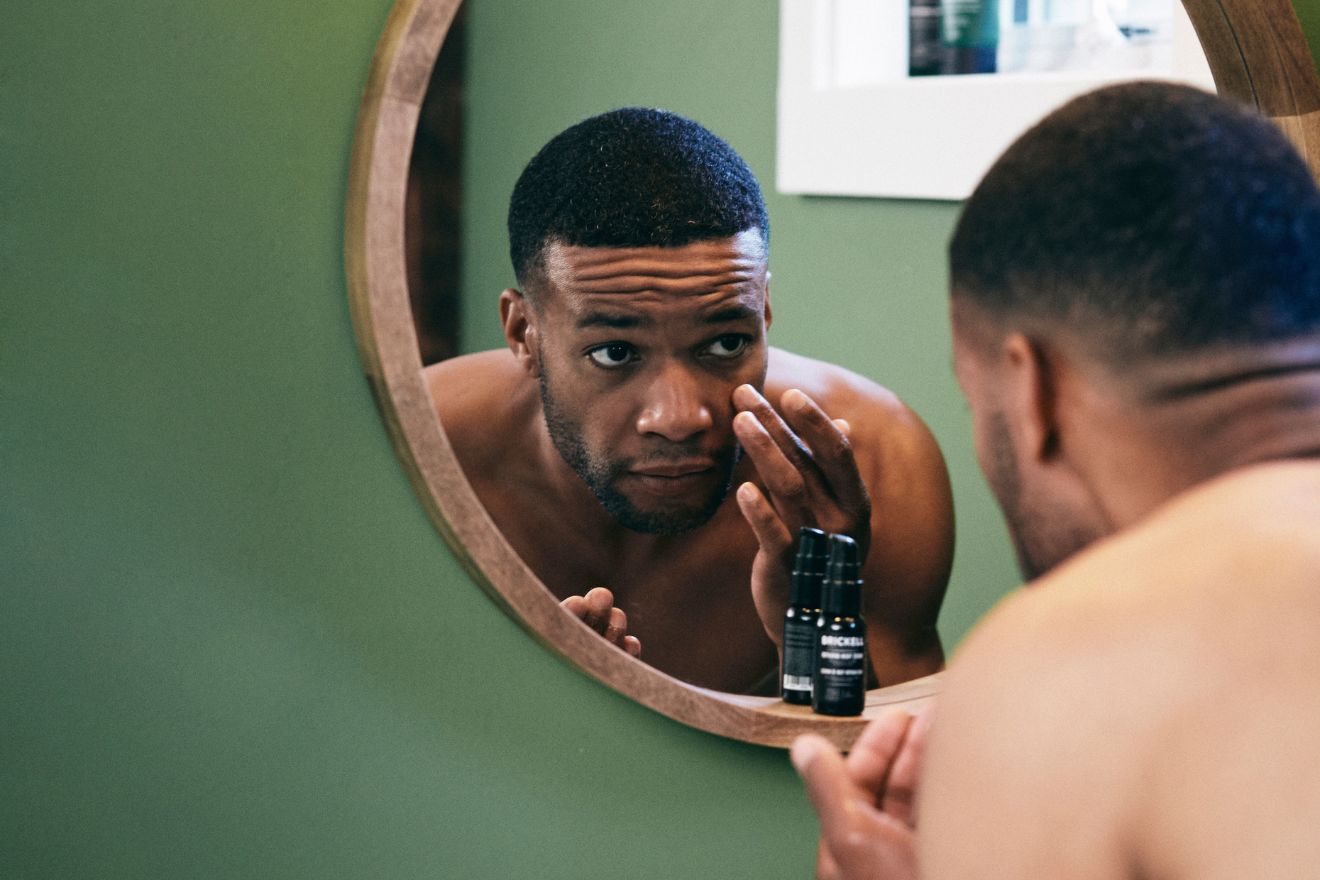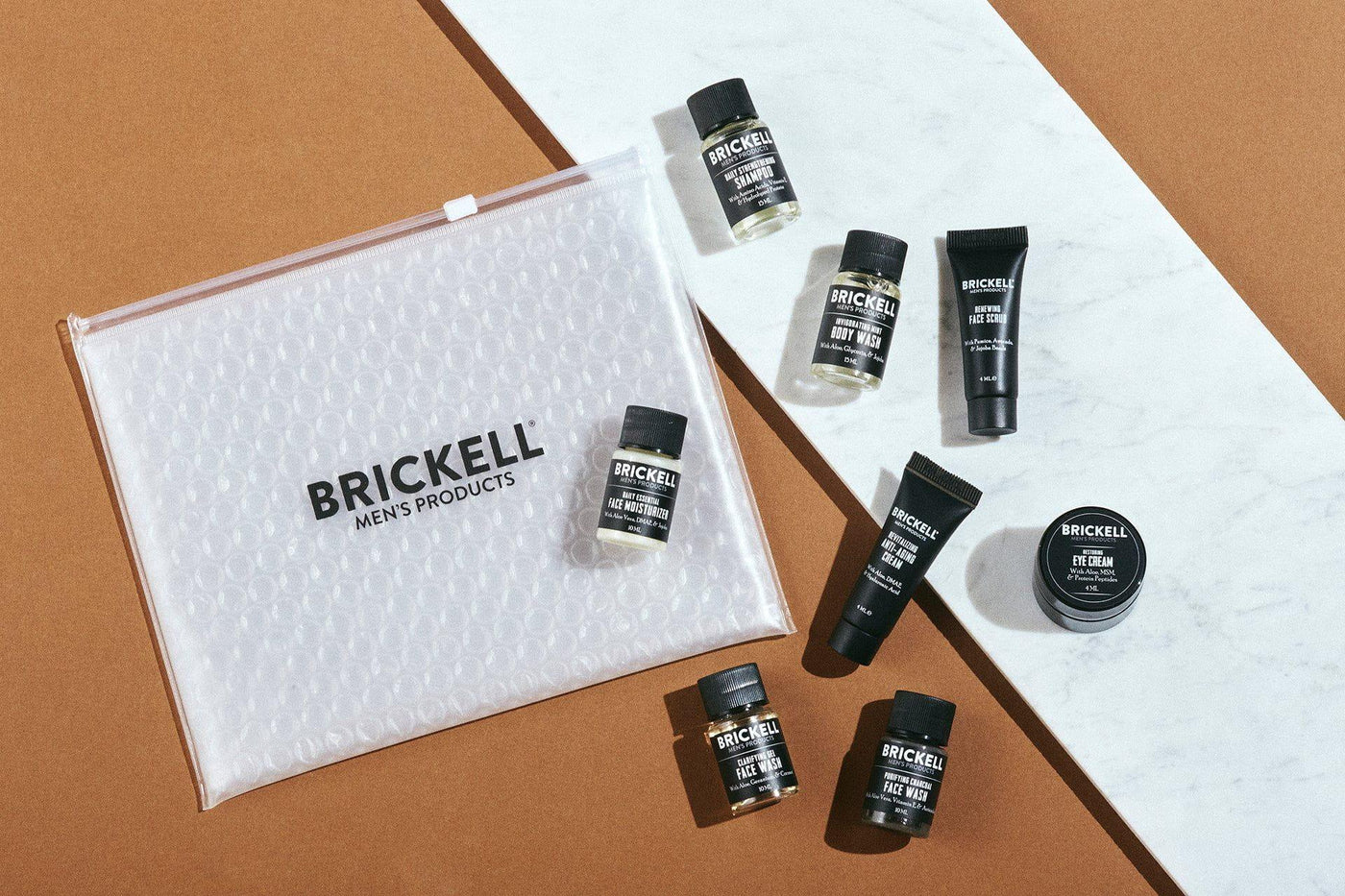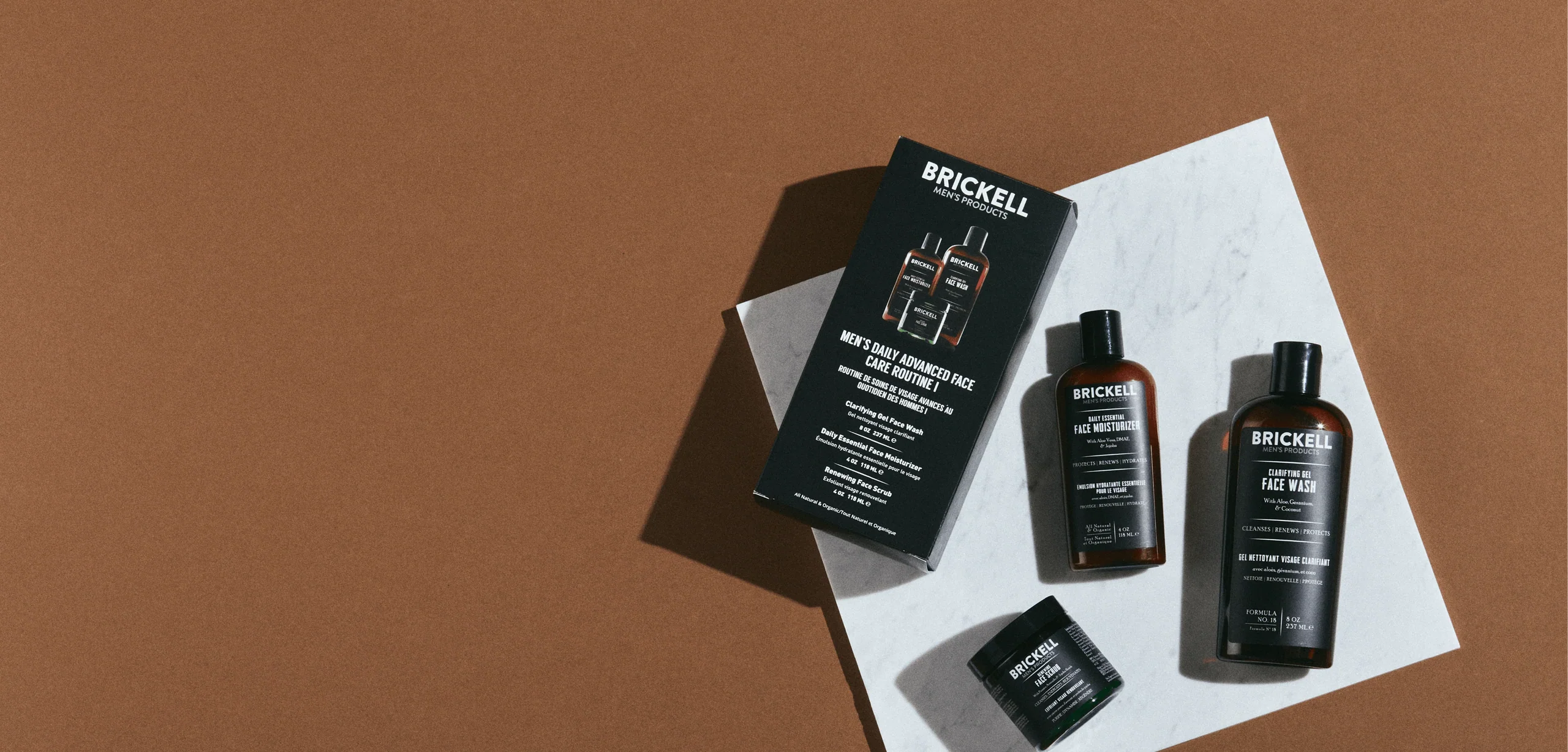The Grooming Manual
How to Avoid Skin Irritation

Redness. Bumps. Itch. Flakes. Skin irritation is a mess. And it’s not fun.
You may experience these symptoms of skin irritation occasionally if you have normal or oily skin. But guys with dry and sensitive skin tend to struggle with irritation much more often.
Want to reduce these symptoms and keep your skin calm and smooth? Follow the tips outlined below to avoid skin irritation. Applied together, they’ll help significantly reduce the frequency and severity of your bouts of skin irritation.
Know Your Skin Type
Knowing your skin type and treating it right is the first and most important step in preventing skin irritation. Most guys fall into one of these categories:
Normal Skin
Not too oil, not too dry, not overly sensitive. Your skin tolerates most products and isn’t especially prone to breakouts. Most active ingredients will work on your skin without causing irritation.
Oily Skin
You tend to have excess oil on your skin that produces shine and a greasy film. Cleansing and exfoliation will help reduce oil, and most active ingredients are ok to use with oily skin. But beware of alcohols, harsh astringents, and oil-stripping detergents since they are common skin irritants and may result in even more oil production and breakouts.
Dry Skin
Your skin often feels tight and easily becomes red or flakey, which is exacerbated when irritated. Avoid ingredients that further dry out your skin, such as alcohol. Choose hydrating, soothing active ingredients like hyaluronic acid, aloe, and plant-based cleansers. Don’t skip the moisturizer.
Combination Skin
Oil builds up on your forehead and nose, but your skin is dry most other places. Stick with gentle ingredients designed for dry skin and use exfoliants and toner sparingly in oily areas only.
Sensitive Skin
This skin type is characterized by frequent irritation and reactivity that can appear as redness, itchiness, bumps, and flaking. Using gentle cleansers - not stripping detergents - is critical to controlling reactions. Less is more when it comes to skincare; focus on strengthening your skin’s natural barrier for the best results.
Use Warm or Cool Water
Hot water is bad news for dry and sensitive skin. Hot water is irritating because it weakens your skin’s natural barrier, damaging the keratin that makes up your skin’s outer layer and diminishing its ability to hold in moisture.
Fortunately, this is an easy problem to avoid. All you have to do is turn down the water temperature a bit when showering, washing your face, and shaving. And don’t worry, you don’t need to use ice cold water to avoid irritation. Warm and cool water are much less drying to your skin than hot or scalding water.
Don’t Overdo Skincare
We are fierce advocates for the benefits of a regular skincare routine that’s designed for your skin type. But we also reject the idea that more is always better when it comes to skincare. Actually, the opposite is true.
The active ingredients in your products cleanse, exfoliate, tone, and hydrate your skin. But if you’re using too many skincare products at the same time, those ingredients can interact with your skin in unintended ways, causing irritation.
For example, exfoliation is an important part of any skincare routine. It can be handled with chemical or physical active ingredients. But you should only exfoliate a few times per week - and only with one type of active ingredients.
If you use a physical scrub one day, then a glycolic acid peel the next, then scrub again after that… expect irritation. Over-exfoliating your skin leads to dryness, redness, itchiness, and other symptoms of sensitivity.
Similar results can be expected if you use face wash, toner, or masks too often. Instead of compounding their benefits, you’re likely to unleash negative side effects. Some of the ingredients you should be careful not to overuse include niacinamide, retinol, vitamin C, BHA (salicylic acid) or AHA (alpha hydroxy acids like glycolic or lactic acid).
For the best results, stick to a basic skincare routine that addresses your skin’s main concerns. Don’t overdo it. Follow the instructions for each product you use and don’t apply them more often than recommended.
Use SPF Regularly
Using an SPF product each day will help minimize the amount of UV damage that's done to your skin. Excessive exposure to sunlight leads to sunburn, peeling, itchiness, redness, and other types of skin irritation.
Some guys blow off the idea that they should apply sunscreen daily (or at least regularly). They think that the only place for SPF products is the beach. But the truth is that using a daily SPF moisturizer - like our Daily Defense Face Moisturizer with SPF 20, is one of the easiest and most effective ways to prevent both skin irritation and long term signs of aging.
Test Your Products Before You Use Them
Spot testing your skincare products before applying them to your entire face is smart, especially if you tend to have sensitive skin. Use a tiny bit on an area that isn't front and center, such as just behind your ear. Then wait at least 24 hours to see if your skin reacts with any kind of irritation. If not, you should be good to use your new product without concern.
The only downside to testing your products this way is that it requires a little bit of patience. But that's well worth it when you consider that not testing could lead to breakouts, redness, or other irritation all over your face.
Choose Fragrance-Free Formulas
The undisclosed ingredients in many synthetic fragrances are frequent causes of skin irritation. Some products are scented with essential oil blends that are typically easier on your skin. But even those can be irritating for some folks with especially sensitive skin. If that's the case for you, your best bet is to choose fragrance-free products. We offer most of our most popular products in fragrance-free varieties for this reason.
Prevent Irritation by Being Gentle
Skin irritation is miserable - so use the above tips to keep it to a minimum. The real secret is to be gentle with your skin whenever possible. Skip the harsh ingredients and hot water. You'll end up looking - and feeling - much better.

